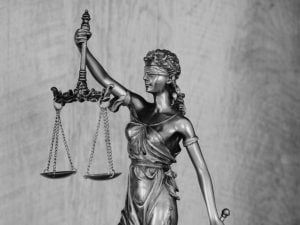Fact summary, Issues and Judgment of Court In Roe v Wade: The Constitution is the basic law of a country and includes provisions that set up the government of a country. It also includes provisions, among other provisions, that guarantee and protect the rights of citizens.
The United States, like many other States, has a Constitution that sets up its government and guarantees the rights of its citizens. Also, like many other states, included in the power of the Legislature to make laws, is the right to amend the laws made. The Constitution, like any other law, is also subject to amendment, based on the amendment procedure laid down by the Constitution itself.
The above power was what gave rise to the various amendments made to the Constitution.
The fundamental rights guaranteed by the Constitution give rise to the right of citizens to sue on the violation of those rights; and various amendments have been made regarding those rights.
The case of Roe v Wade is a landmark case where the Supreme Court of the United States determined the rights of a woman with regards to abortion.
Even though the decision arrived at in this case was limited by the later case of Webster v Reproductive Health, which allowed some degree of regulation for abortion, the case of Roe v Wade was a foundation for the protection of women’s rights with regards to their bodies and reproduction.
Fact summary of Roe v Wade
Norma McCorvey, whose alias was Jane Roe, was a single woman who was pregnant. She brought a suit in the Texas Federal Court against Henry Wade who was District Attorney of Dallas County, because she could not get an abortion in Texas, as Texas had a law prohibiting abortion, unless the life of the mother was in danger. She said she could not get the abortion done in Texas as her life was not in danger and she also could not afford to travel to another state to get the abortion done.

Roe claimed that the law of Texas prohibiting abortion had violated her right under the First, Fourth, Fifth, Ninth and Nineteenth Amendments of the Constitution.
She also stated that she was suing for herself and on behalf of all women who were in her position.
The First Amendment of the United States Constitution protects the right to petition, freedom of religion, freedom of press, freedom of speech and freedom of assembly. It is part of the United States Bill of Rights.
The Fourth Amendment of the United States Constitution is also part of the United States Bill of Rights. It prohibits unreasonable seizures and searches. It requires that, where there needs to be a search, such search must be backed by a search warrant that was sanctioned by the court. This amendment was introduced by James Madison, to the Congress, in 1789.
The Fifth Amendment of the United States Constitution, part of the Bill of Rights, guarantees various legal rights. It protects a party to a suit against self-incrimination; it protects the right to a grand jury; it protects against double jeopardy. Employing these rights is called ‘pleading the fifth‘.
The Ninth Amendment of the United States Constitution is an amendment that supports a few other rights, one of which includes the right to privacy. The Ninth Amendment entails that, other than the rights written in the Constitution, the people of America have other rights.
The Fourteenth Amendment of the United States Constitution has been described as the most important amendment of the Constitution, since the Bill of Rights was passed. This amendment provided for the right to citizenship and equal protection of the law.
After the amendment provided that all persons who are born and naturalized in the United States shall be citizens, the Privileges and Immunities Clause of the amendment provided that all citizens of the state shall be entitled to the immunities and privileges of citizens in each state. The amendment was greatly litigated as a result of the history behind it, being made in the time of the slavery.
The state contended that the fetus was a person under the law and that the state had the duty to preserve prenatal life.
Also see: 7 major characteristics of human rights
Issue determined in Roe v Wade
Whether the Texas law prohibiting abortion violated the plaintiff’s rights under the First, fourth, fifth, ninth and Fourteenth Amendment of the Constitution.
Recommended: Major schools of thought in law
Decision of the court in Roe v Wade
The Supreme Court of the United States decided that the Constitution allowed for women to have an abortion if they wanted to, without being restricted unnecessarily by the government. It held that the law enacted by the state to ban abortion, except in a case where the mother’s life was at risk, was unconstitutional.

The court stated that the right to abort her child was part of a woman’s right to privacy and was protected by the Fourteenth Amendment of the United States Constitution, as long as the abortion was within the first trimester of the pregnancy.
Justice Harry Blackmun, writing the majority decision stated that it was acknowledged by the court that the issue was a sensitive one that inspired a lot of opposing opinions.
This is as, while there were supporters of abortion, now termed ‘pro-choice‘, there were also supporters of preserving the life of the unborn baby, which is now termed ‘pro-life‘. Their argument is that the fetus had a right to life and the state had a duty to protect it.
Recommended: Ways through which human rights can be protected
In writing his dissenting opinion, William Rehnquist pointed out that the Plaintiff was disqualified to bring the suit because she was past her first trimester; that abortion was not a private matter; that the majority decision failed to point out where the right to privacy was contained in the Constitution and that the Constitution didn’t include the word privacy; and that the court acted as the legislature by dividing pregnancy into three trimesters, and defining the restrictions that were permissible by the State.
However, the opinion of William Rehnquist was a minority opinion and with another dissenting opinion, went against the majority opinion of seven other judges.
Also see: Places to buy lawyers wig and gown online
Conclusively, the court held for the plaintiff and maintained that the right of the woman to privacy and her autonomy over her body was to be upheld. Even so, it made a restriction over the right to abort by restricting such right to the first trimester.

Edeh Samuel Chukwuemeka, ACMC, is a lawyer and a certified mediator/conciliator in Nigeria. He is also a developer with knowledge in various programming languages. Samuel is determined to leverage his skills in technology, SEO, and legal practice to revolutionize the legal profession worldwide by creating web and mobile applications that simplify legal research. Sam is also passionate about educating and providing valuable information to people.